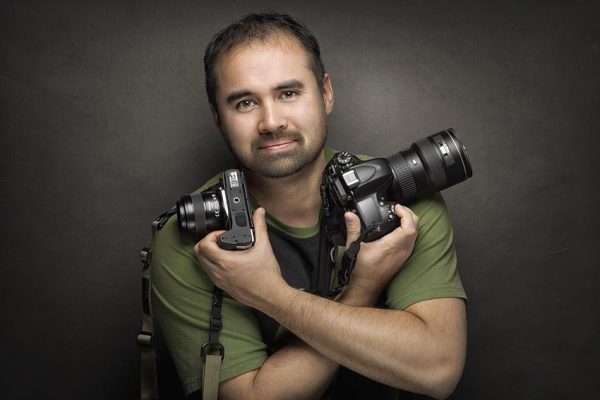
Joe Braun is a senior systems administrator at U-M’s Institute for Social Research. He has worked at the institute for 25 years, and currently supports researchers and data collection teams by overseeing systems operations, troubleshooting applications, and managing the Windows Active Directory and infrastructure. Outside of work, he enjoys hiking, music, and photography.
Tell us about your role as a senior systems administrator.
I’ve been working at the Institute for Social Research for roughly 25 years now. I started as desktop support and I eventually evolved into systems administration. These days I manage our Windows Active Directory and server infrastructure and I also help our researchers and data collection operations teams come up with secure, workable solutions. I also work a lot with our development teams to deploy and troubleshoot their applications.
What do you enjoy most about your job?
I would say that seeing a project that you’ve been working on and testing for a very long time and finally watching it actually go live and be successful is a wonderful feeling.
We’ve had a lot of go-lives where I’ve honestly been really nervous. On the morning of a go-live I will actually feel my heart bouncing out of my chest. When services go live and work as they should, I feel a euphoria come over me. It’s not the end of the world today; we’re still alive! It’s a wonderful feeling.
What advice do you have for people as they design systems and services or choose new vendors?
This is a hard question to answer, but projects and designs typically start in the abstract with marketing concepts and sales lingo. It’s important to bring the discussion out of the clouds and down to the nuts and bolts before you get too deep into a project. Often there are deal breakers or show-stoppers that must be dealt with first before it’s possible to move forward. It’s better to attack those problems early in a project rather than in the eleventh hour before a go-live.
How did you get into this type of work?
I originally got my degree at U-M in music theory and ethnomusicology. I didn’t major in computers, but I had always been a computer nerd. When I was a kid, I took apart my parents’ computer, and put it back together and I enjoyed programming and scripting. I was just really into computers my entire life, but I never realized you could make a living at it.
After I got out of grad school from U-M, I was lost and had no idea what I was going to do, because I didn’t really want to go down the music path at an academic level. So I got a temp job at the Institute for Social Research doing data entry one summer, thinking that I’d only be working there for three months. I helped my boss at the time with some random email problem that she had, and she said, “You don’t belong in this department, you should work for the computing department.” She fixed me up with the head of computing at the time, and he just walked up to me one day and said, “I’m your worst nightmare. You’re going to start working for me now.” Twenty five years later, I’m still doing it. And I love it because I get to be a computer nerd and get paid for it.
You enjoy hiking, music, and photography. Have these aspects of your life changed or found new meaning during this year of social distancing?
I’m lucky that one of my favorite things to do — hiking and backpacking — is a fairly solitary activity so I’m able to easily do it during the pandemic. I typically travel the country a lot more, but this year, I’ve been exploring Michigan a lot more, and I’ve learned to appreciate what we have here in our beautiful state. But I am looking forward to getting back to my favorite national parks (Zion, Yosemite, and Acadia). I love to pair my love of the outdoors with my love of photography. My degree in ethnomusicology and music theory translated over into my photography and helps me think about how to make my art well-balanced and purposeful.
Are there any particular lessons—work-related or more general—that you’ve learned from this last year?
This year has been very stressful and isolated, but I’ve learned to keep breaking up the day with various routines or work on longer-term projects to mark the passage of time in a different way than simply flowing through the mundane, isolated day-to-day routine. Going for daily walks, working on home projects, studying a random IT subject, etc. help me feel like I’ve achieved something positive in this past year of living in a box.
What has been the impact of working remotely for the past year?
I’m really looking forward to the pandemic being over. One of the things I really miss is being with all of my co-workers in my department. I don’t know how happy other IT groups are, but our group is pretty tight and we would always enjoy talking and joking around. When we were in the office, I would be able to shout across the hallway to one of my friends. And we just haven’t had that this year. Various chat apps and Zoom aren’t the same as real interpersonal communication. I hope there’s a new normal where we’re back again because I really miss it.
